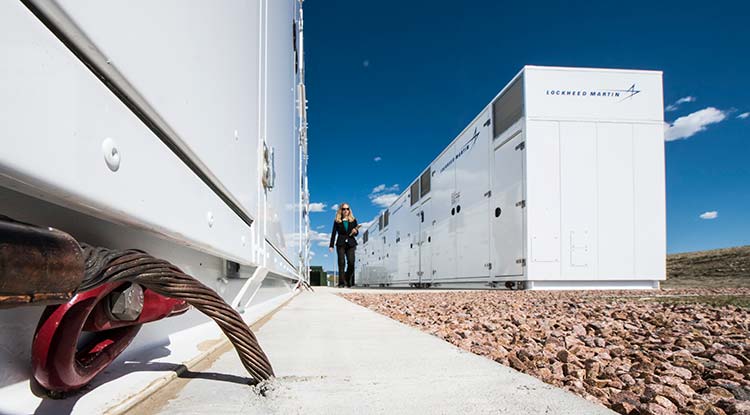REopt Evaluates Savings Potential for a Load-Shaving Battery System at Fort Carson

A utility-scale lithium-ion battery energy storage system installation reduces electrical
demand charges and has the potential to improve energy system resilience at Fort Carson.
Photo by Dennis Schroeder, NREL 56316
NREL used the REopt® model to evaluate the savings potential and preliminary design of an 8.5-megawatt-hour 2-hour battery energy storage system (BESS), implemented in January 2019 at the U.S. Army's Fort Carson in Colorado Springs, Colorado. The BESS will shave an estimated $500,000 off the Army's utility bill every year and can handle a load equivalent of up to 3,400 family residences.
The system's guaranteed 20-year lifespan could extend Fort Carson's resilience out two decades. The BESS was implemented though an energy savings performance contract, resulting in no up-front cost for Fort Carson, and guaranteed savings throughout the performance period.
The BESS uses artificial intelligence to forecast electrical demand peaks and commands the timing, intensity, and duration of charge/discharge cycles. The U.S. Department of Energy's Federal Energy Management Program (FEMP) funded NREL's third-party REopt assessment, which was essential to Fort Carson's evaluation of the technology risk.
In addition to Fort Carson, NREL, and FEMP, several more organizations had key roles in the BESS project, including the U.S. Army Corps of Engineers (energy savings performance contract), Colorado Springs Utilities (grid interconnection), AECOM (project design and implementation), Lockheed Martin (Gridstar energy storage units), and Geli (battery control system).
Related Stories
NREL video: NREL's REopt Helps Fort Carson Save Big
Sponsors
Department of Energy FEMP
Key Partners
Fort Carson, AECOM, FEMP
Contact
Share
Last Updated Feb. 12, 2025
